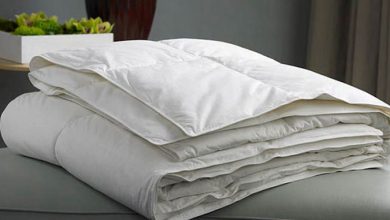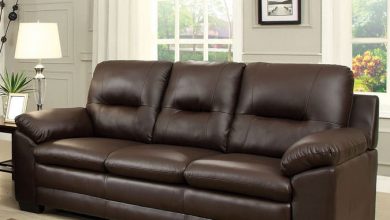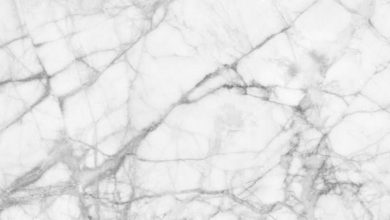
How to get rid of the smell of smoke from the house
The smell of smoke is one of the main enemies of many people who tolerate it little and of environments, surfaces, and fabrics. Besides being unpleasant, it is complicated to eliminate and impregnates them with a strong and persistent stale note.
Also for this reason, especially in closed environments such as the home, the best solution would be the most radical one: do not smoke at all or prevent doing so, since a simple cigarette of one person can suffice to spread that unmistakable stinky smell, which although lessened, the next day it may still be there.
Fortunately, there are several natural remedies, and in the most difficult cases also chemical ones, to eliminate it and prevent it from accumulating over time, making it look more like a ” gas chamber ” than a civilian home.
Here are some simple and cheap tips on eliminating the smell of smoke from the house. Before spending a day washing everything (and everyone) and sleeping on the terrace at night, breathing some clean air finally, becomes a sad reality.
The simplest and most immediate thing to do to eliminate the smell of smoke is to open the windows to make the rooms involved to ventilate well, even throughout the day, if appropriate and temperatures allow. But this may not be enough since that of pipes, cigars, and cigarettes is particularly persistent.
Go ahead, then to the use of specific spray-deodorant and scented candles. Here, among other things, there are excellent versions that are also very decorative, fun, or chic, allowing you to combine business with pleasure.
Among the natural remedies to counter the smell of smoke, vinegar and orange and lemon peels are excellent, to be put in a container to be left open on a piece of furniture or the ground; in winter, it is better to place it on the radiator, to favor the diffusion of delightful essential and aromatic oils.
A good do-it-yourself natural deodorant can be made by mixing 1 dose of water with 2 of vinegar and 2 drops of eucalyptus essential oil. Just fished out an old spray diffuser, vaporize some in the rooms a few times a day, and you’re done.
To mitigate the negative effects (all too predictable) of the next guests or family smokers, it is good to start ” arming ” the ashtray for the next ” war “: after having washed it to perfection to eliminate the stinking residues, it must be dried and filled pleasure with a little sugar, coffee, baking soda or charcoal. They are all four excellent remedies to combat the smell of smoke that has been and the butts to come.
If it accumulates for a long time, the smell of smoke is also a bitter enemy of the walls. To the most skeptical, ask for impressions about a friend who has rented or purchased a house previously inhabited by an avid smoker.
The situation worsens significantly if the walls are covered with wallpaper, which becomes impregnated and yellowed even more because of the smoke instead of the exposed plaster.
In this case, the minimum to do is air the house, even for many days. In the most difficult cases, repainting the rooms is an excellent solution, but it may not be enough alone.
Before applying the paint, it is advisable to treat the walls with a specific anti-tobacco primer or with a perfumed fixative, which would further improve the color rendering.
The smell of smoke does not spare even objects, such as furniture and fabrics, which can pay dearly for the presence of very ” active ” smokers. As you can imagine, the keyword is only one: wash, wash, and wash again. Thing? Unfortunately, all or almost all.
Even an often overlooked element, such as the light bulb, is one of the ones that most of all impregnates itself with the stench of smoke, making it difficult to remove, also considering the delicacy. The heat emitted then facilitates its diffusion, making the situation worse.
Even the floor requires extra attention: it must be degreased and cleaned well, preferably with a natural detergent ” eliminates odors ” with a prolonged effect, as long as it is not aggressive.
The same ” complete washing ” applies to fabrics, especially if the smell is particularly intense and has already unmistakably marked all around. Then immediately in the washing machine curtains, sofa cushions and sofa covers, and then again, blankets, rugs, tea towels, and so on: both to make them come back scented because the persistence of the smoke could turn them yellow and ruin them.
For non-removable fabrics, you can instead opt for dry cleaning with baking soda, to be poured over and removed after about 15 minutes with a brush, finally vacuuming the minimum residues with the vacuum cleaner.
Also, please pay attention to the glass, which in turn is sensitive to smoke: it makes them smelly, opaque, and in the long run, yellowed. They can easily be cleaned immediately, in a short time, with hot water, vinegar, and the multifunctional bicarbonate.
Finally, to clean the furniture, doors, and other surfaces of the house, they are too involuntary ” victims ” of smokers. There are many specific detergents, but vinegar is also excellent (and cheaper) for its extraordinary ability to eliminate smells without attacking.
Another useful solution is diluted ammonia. It is better to test on a small portion of the element to be treated, to see how it reacts.
In short, there is no lack of solutions, but to overcome the challenge against the smell of smoke in the home, it takes a lot of effort. It is useless to lie if it is huge, but one does (quit) smoking first.
Tips:
- Always keep some citrus peel at home, absorbing bad smells.
- If a piece of furniture or an object has a strong smell of smoke.
- It is better to leave it outside for a few days.
- Vinegar is an inexpensive and excellent detergent capable of eliminating the smell of smoke.
- Baking soda can be used to dry clean fabrics that cannot be washed with water.
- Be careful to clean the bulbs well as they become soaked in smoke, and the heat emitted facilitates their diffusion.
- Greenlight to the vacuum cleaner to eliminate all the ash and residues left on furniture and floors.




